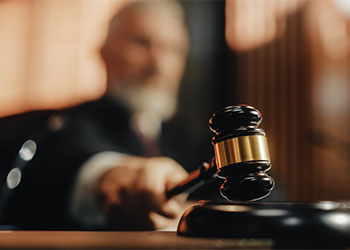What to Expect at Your Probation Violation Hearing
Oct. 23, 2023
 Probation violation hearings can be a daunting experience, particularly if you're unfamiliar with the process. Understanding what to expect can help alleviate some of your concerns. This article aims to clarify the probation violation hearing process in North Carolina and equip you with the knowledge to navigate it effectively.
Probation violation hearings can be a daunting experience, particularly if you're unfamiliar with the process. Understanding what to expect can help alleviate some of your concerns. This article aims to clarify the probation violation hearing process in North Carolina and equip you with the knowledge to navigate it effectively.
When facing a probation violation hearing, Life Law is your steadfast ally. With over 15 years of experience, our team excels in representing individuals and families in Raleigh and the surrounding areas. We take the time to understand you as an individual, not just as a case. This personal approach allows us to tailor a defense strategy that best suits your unique circumstances. We're committed to ensuring fairness and justice for you within the legal system.
At Life Law, we don't just provide legal representation—we arm you with knowledge, helping you understand your options and potential outcomes. We're here to fight for your rights and work towards the most favorable resolution possible. Facing a probation violation doesn't have to be overwhelming; with Life Law, you have a dedicated, experienced, and empathetic team on your side.
Probation Violations in North Carolina
In North Carolina, probation violations are viewed seriously and can lead to significant consequences, including possible incarceration. Probation violations can occur in several ways: failure to report to a probation officer, non-payment of court-ordered fines, failure to appear in court, traveling beyond prescribed limits without approval, arrest for an unrelated crime, or drug or weapons possession charges.
There are two main types of probation violations:
Technical violations: These occur when probation terms are not met for reasons unrelated to a new crime. Examples include traveling outside the county or state limits without proper authorization.
Substantive violations: These occur when a probationer commits another crime unrelated to the original probation charges. Substantive violations are considered more severe than technical violations and often result in more serious penalties.
The Probation Violation Hearing Process
When a probation violation is reported, the court generally orders the probationer to appear in court. Here's what to expect:
Request to appear in court: A probation violation often starts with a report from a probation officer. The court will then order the probationer to appear and explain the situation.
Determination of violation: At the hearing, the prosecution must prove that the violation was willful. The court will also consider any prior violations and mitigating circumstances.
Sentencing: If a violation is found, the court can extend the probation period, require a short jail term, or mandate the remainder of the original sentence to be served in prison.
Preparing for Your Probation Violation Hearing
Preparation is key to navigating a probation violation hearing successfully.
Understand the charges: Know the specifics of your alleged violation and understand the potential consequences.
Gather evidence: Collect any evidence that supports your case, such as documents or witness testimonies.
Seek legal counsel: It's highly recommended to consult with a criminal defense attorney. They can provide guidance, help you prepare your defense, and represent you in court.
Seek Trusted Legal Representation
Facing a probation violation hearing can be stressful, but understanding the process and preparing thoroughly can help you navigate it more confidently. Remember, you don't have to face these challenges alone. At Life Law, we're committed to fighting for your rights. Serving clients in Raleigh, Nags Head, Charlotte, Asheville, and Wilmington, North Carolina, we bring knowledge, experience, and empathy to every case. Don't hesitate to reach out for trusted legal help during this challenging time.
A probation violation doesn't have to define your future. With proper preparation and legal representation, you can effectively navigate your probation violation hearing and move forward.
